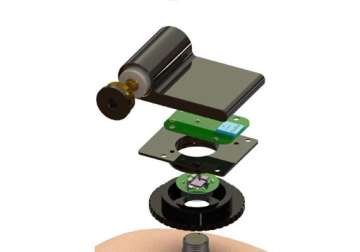New Delhi: Scientists have developed a new high-data rate, low-power wireless brain sensor that can make neuroscience research a lot more easier.
"We view this as a platform device for tapping into the richness of electrical signals from the brain among animal models where their neural circuit activity reflects entirely volitional and naturalistic behavior, not constrained to particular space," said Arto Nurmikko, professor of engineering at the Brown University's Institute for Brain Science.
"This enables new types of neuroscience experiments with vast amounts of brain data wirelessly and continuously streamed from brain micro-circuits," he added.
The technology is designed to enable neuroscience research that cannot be accomplished with current sensors that tether subjects with cabled connections.
The results show that the technology transmitted rich, meaningful signals from animal models as they slept, woke or exercised.
The wireless transmitter is compatible with multiple types and classes of brain sensors.
"We have developed this compact light-weight neurosensor with a custom-designed low-power high-efficiency transmitter," said lead author Ming Yin, research engineer in Nurmikko's lab at the Brown University.
The authors hope that the wireless neurosensor will enable scientists explore the nervous system within its natural context and without the use of tethering cables.
The paper was detailed in the journal Neuron.
Latest Business News
